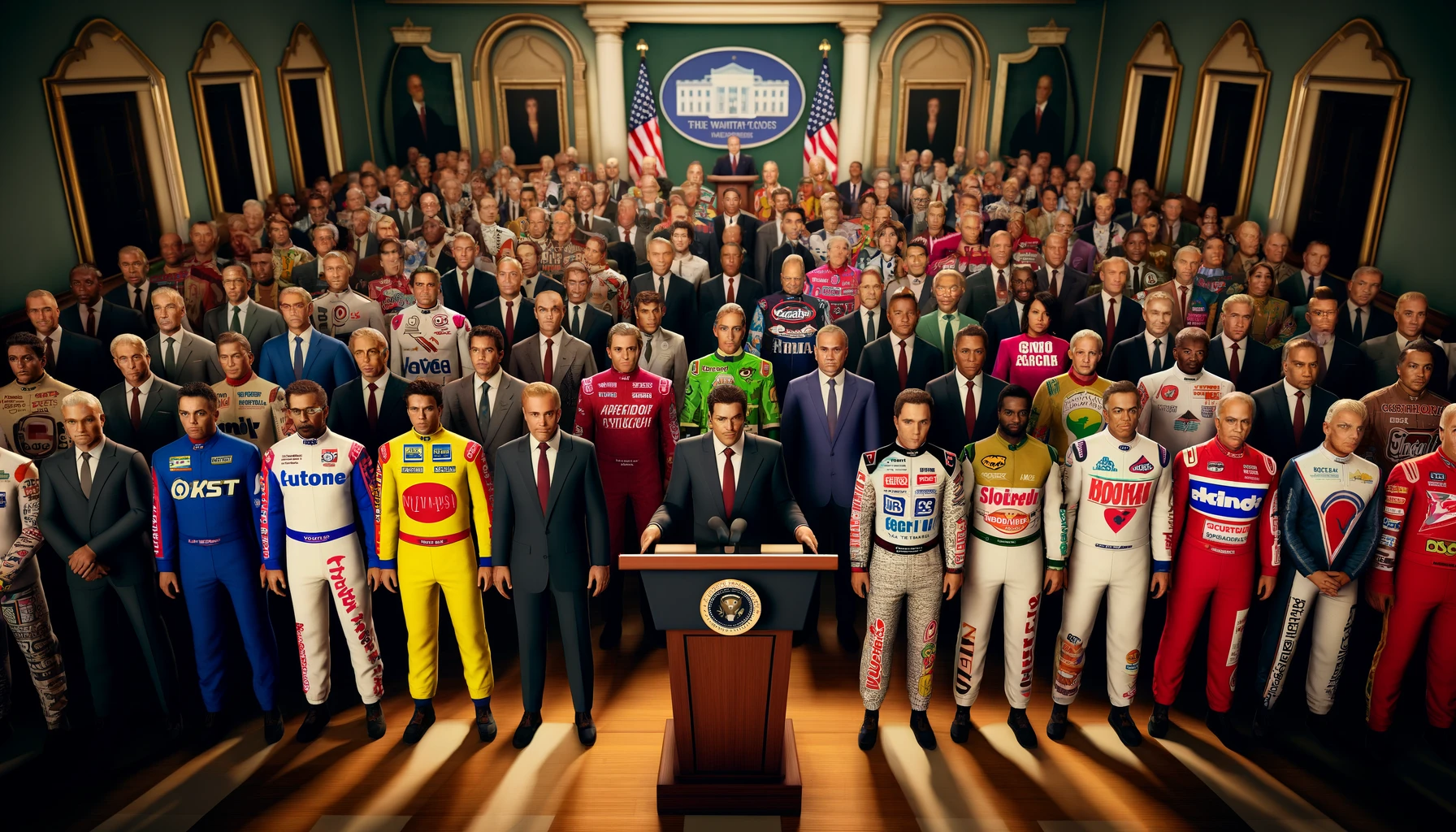In a move that’s being hailed as a game-changer for political transparency, lawmakers across the globe have agreed to a groundbreaking new dress code: all politicians will now wear sports jerseys emblazoned with the logos of their corporate sponsors and special interest groups during official proceedings. This decision, aimed at shedding light on the murky waters of campaign finance, ensures that the public can easily identify who is funding their representatives’ campaigns and legislative priorities.
The policy, dubbed “Wear Your Support on Your Sleeve,” was introduced amid growing concerns over the influence of money in politics. “It’s all about transparency,” explained one legislator, adjusting the oversized logo of a major oil company on their jersey. “Now, when I debate energy policy, there’ll be no doubt about where my interests—or rather, my sponsor’s interests—lie.”
Parliamentary sessions have taken on a new look, resembling more of a sports league event than a legislative process. The assembly hall, now dubbed the “Political Arena,” even features a live “sponsorship standings” scoreboard, highlighting which politicians are leading in corporate endorsements.
Critics argue that the move could further entrench the role of money in politics, but supporters counter that it at least makes the influence-peddling transparent. “If our elected officials are going to be bought and paid for, they might as well wear that reality like a badge of honor—or a jersey, as the case may be,” commented a leading political analyst.
In addition to providing clarity, the jerseys have sparked a new form of political discourse. Voters can now easily spot their representatives’ affiliations, making for lively debates both online and in town halls. “I used to wonder whose interests my representative was really serving,” shared one voter. “But seeing them decked out in logos makes it crystal clear. It’s like fantasy football, but with policy implications.”
The initiative has also opened up new revenue streams for political campaigns, with some politicians securing lucrative sponsorship deals. “Why stop at yard signs and bumper stickers when you can be a walking billboard for your donors?” mused one senator, showcasing their jersey crowded with logos from various pharmaceutical companies.
As the world watches this bold experiment unfold, questions abound: Will this lead to greater accountability, or just turn politics into another spectator sport? Only time will tell, but one thing is certain—the relationship between money and politics has never been more visible.

